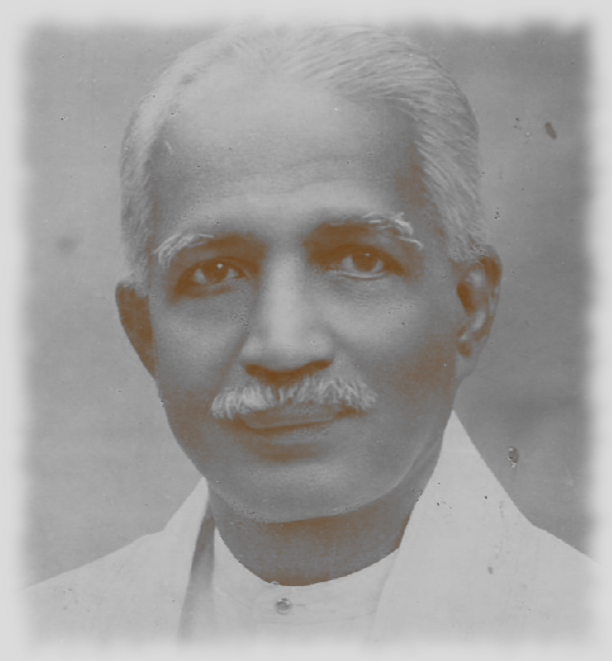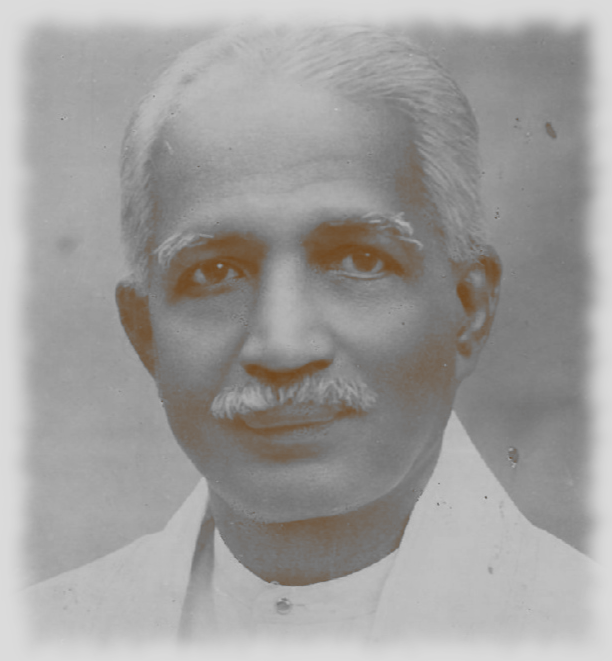


Christopher William Wijekoon Kannangara, commonly known as C.W.W. Kannangara (1884–1969), was a prominent Sri Lankan lawyer, politician, and education reformer who is widely celebrated as the "Father of Free Education" in Sri Lanka. Kannangara was instrumental in introducing free education to the country, making quality education accessible to all Sri Lankan children, regardless of their social or economic background. His visionary policies laid the foundation for the universal education system in Sri Lanka, which remains one of the most notable achievements in the country’s history. Kannangara also played a key role in the independence movement and the formation of Ceylon's (now Sri Lanka) Constitution.
Birth and Background: C.W.W. Kannangara was born on October 13, 1884, in Randombe, near Ambalangoda, in the Southern Province of what was then British Ceylon. He came from a modest family, with his father working as an ayah (houseboy). His early life and upbringing in a rural setting gave him firsthand experience of the challenges faced by children from less privileged backgrounds.
Education: Kannangara attended Wesleyan Missionary School in Ambalangoda, where he excelled in his studies and earned a scholarship to attend Richmond College, Galle—a prestigious school at the time. He continued to perform well academically, becoming head prefect and excelling in both studies and extracurricular activities. His educational journey exposed him to the opportunities that good education could provide and instilled in him a belief in the transformative power of education.
Legal Career: After completing his schooling, Kannangara pursued a career in law, training as a proctor. He was successful in his legal career, which provided him with the means to enter politics and influence public policy.
Entry into Politics: C.W.W. Kannangara entered politics in 1919, when he joined the newly formed Ceylon National Congress (CNC), an organization that sought greater political autonomy from British colonial rule. He was elected to the Legislative Council of Ceylon in 1923 as the representative for the Galle District. His election marked the beginning of a long and influential career in Ceylonese politics.
Member of the State Council: In 1931, Kannangara was elected to the State Council of Ceylon under the Donoughmore Constitution, which introduced limited self-government to the country. He was appointed as the Chairman of the Executive Committee of Education, a role that gave him significant influence over educational policy. It was in this role that Kannangara began his mission to reform the education system and make quality education accessible to all.
Education Reforms: C.W.W. Kannangara is best known for his pioneering work in promoting free education in Sri Lanka. During his tenure as Chairman of the Executive Committee of Education, he identified significant disparities in the education system, with only children from wealthy families having access to quality education. He believed that education was the key to social mobility and national development and that every child, regardless of their socio-economic background, should have equal access to educational opportunities.
Introduction of Free Education: In 1943, Kannangara introduced the Free Education Bill, which proposed providing free education from primary school to university. The bill was passed by the State Council, and the Free Education Scheme was implemented in 1945, making Sri Lanka one of the first countries in Asia to offer free education at all levels. This landmark reform ensured that every child in the country had access to schooling without the burden of tuition fees, significantly expanding access to education and reducing inequalities.
Central Schools (Madhya Vidyalayas): As part of his efforts to make quality education accessible across the country, Kannangara also established Central Schools (Madhya Vidyalayas). These schools were strategically located in rural areas to provide children from underprivileged backgrounds with access to the same quality of education available in urban areas and elite schools. The Central Schools played a crucial role in leveling the educational playing field and producing a generation of well-educated Sri Lankans who went on to become leaders in various fields.
Introduction of the Scholarship System: Kannangara introduced the Grade 5 Scholarship Program to identify talented students from underprivileged backgrounds and provide them with opportunities to attend the best schools in the country. The scholarship system enabled bright students from rural areas to gain admission to prestigious schools, which further contributed to reducing disparities in access to education.
Resistance from Elites: Kannangara faced considerable opposition from the elite and conservative sections of society, who were against the idea of free education for all. Many wealthy families, who could afford to send their children to prestigious schools, were resistant to the idea of government-funded education for everyone, as they feared it would diminish the exclusivity of elite institutions. Despite this opposition, Kannangara remained determined and continued to advocate for his vision of an equitable education system.
Dedication to Educational Reform: Kannangara's passion and dedication to education reform were evident in his tireless efforts to push forward with his vision despite numerous obstacles. He traveled extensively across the country, visiting rural communities to understand their needs and build support for his reforms. He believed that education was the foundation of a democratic society and was essential for empowering individuals and fostering national development.
Father of Free Education: C.W.W. Kannangara is celebrated as the "Father of Free Education" in Sri Lanka for his role in transforming the education system and making quality education accessible to all children, regardless of their background. His efforts laid the foundation for Sri Lanka's high literacy rates and its reputation for having one of the best education systems in South Asia.
Social Mobility and Development: The introduction of free education had a profound impact on Sri Lankan society. It led to increased literacy rates, improved social mobility, and the creation of a more educated workforce. Many Sri Lankans who benefited from Kannangara's reforms went on to become prominent figures in fields such as medicine, engineering, law, and public service. The expansion of educational opportunities helped bridge the gap between rural and urban areas and contributed to reducing socio-economic inequalities.
Recognition and Honors: Although Kannangara's contributions were not fully recognized during his lifetime, his legacy has since been widely acknowledged and celebrated. Schools, scholarships, and awards have been named in his honor, and his role in shaping the country's education system is commemorated annually in Sri Lanka. He is remembered as a visionary leader whose work transformed the lives of countless Sri Lankans by giving them access to the transformative power of education.
Later Political Career: Despite his monumental contributions to education, Kannangara's political career faced challenges in later years. He lost his seat in the 1947 parliamentary elections but continued to work as an advocate for social justice and education. He returned to Parliament in 1952 but retired from active politics in 1956. Although he did not hold significant political power in his later years, his influence on education policy remained lasting.
Death: C.W.W. Kannangara passed away on September 23, 1969, at the age of 84. Despite facing challenges and limited recognition during his lifetime, his contributions to Sri Lanka's education system have since been recognized as some of the most important reforms in the country's history.
C.W.W. Kannangara was a visionary leader whose commitment to free and equal education transformed Sri Lanka's education system and laid the foundation for the country's social and economic development. His efforts to introduce free education from primary to university level, establish Central Schools to expand access to quality education in rural areas, and implement a scholarship system to support talented students from underprivileged backgrounds were groundbreaking initiatives that continue to shape the lives of millions of Sri Lankans.
Kannangara's legacy as the "Father of Free Education" is evident in Sri Lanka's high literacy rates, its well-educated population, and the opportunities available to generations of Sri Lankans, regardless of their socio-economic background. His work emphasized the importance of education as a fundamental right and a means of empowering individuals and building a prosperous, democratic society. C.W.W. Kannangara remains an enduring symbol of the transformative power of education and the positive impact that visionary leadership can have on a nation.

We use cookies
We use cookies and other tracking technologies to improve your browsing experience on our website, to show you personalized content and targeted ads, to analyze our website traffic, and to understand where our visitors are coming from. Privacy Policy.